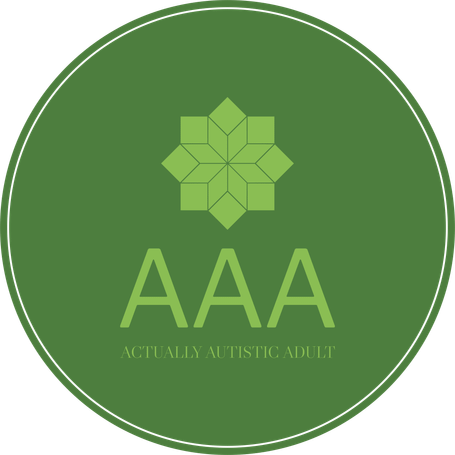What's it like being autistic?
Written in March 2024
It's a question I get asked a lot. It's also one that I have found hard to answer in the past, but the more I've been asked it, the better I've got an expressing it.
I can't really know how being autistic “feels” compared to being allistic*, which is how I'd have to frame an answer for it to make any sense to the (usually allistic) questioner. If I answered with “it feels normal” that wouldn't actually answer the question in any meaningful way. My neurodivergence also isn't confined to autism; I'm multiply neurodivergent (in fact that's the norm, most of us ND folk meet the diagnostic criteria for other ND conditions). My answers, therefore, are informed by this experience.
The computer analogy
It's like being a Mac in a Microsoft world. My brain can do a lot of the same things anyone else's does, but it organises the information differently. The file structure makes more sense (to me) and you don't have to click “start” to log off (a lovely metaphor for the allistic trait of saying the opposite of what you actually mean). Some things my brain does better, and some it struggles with, usually due to software compatibility issues and different file formats.
It's also like having a browser window open with loads of different tabs, and there's music playing from a couple of them but you can't work out which one and it's all getting a bit loud and complicated and tangled and you've lost the tab you needed and ARGH! This really does translate to the real world because a lot of ADHD/AuDHD people will have multiple browser windows open with things to return to. Yeah, you can bookmark stuff but once it's gone in there, and isn't actively open, it will get forgotten about. I've got one open with podcasts and e-books, and usually one with research papers.
The intense sensory world and vague rules
It's like living in a world where there's a constant noise of fingernails on a chalkboard, but everyone else pretends they can't hear it, or that “it's not that loud” or that “ you shouldn't let it bother you”. Trivial interactions can involve gaslighting and invalidation, and you're not allowed to know the rules – the rules that everyone else instinctively knows, but which they deny the existence of (for a longer read on this concept, I recommend Erewhon by Samuel Butler)
The neurodiversity tax
Life can be more expensive. There's a disability tax associated with having needs (any type of need) that the general population doesn't. For autism this might be having to arrange a schedule around quieter times in shops that doesn't fit with a bus timetable, necessitating a taxi. It might be the time and financial cost associated with finding replacements for the only sort of shirt/trousers/underwear/whatever that you can tolerate against your skin. It might be the social cost of not masking and being bullied or mistreated.
For ADHD it might be the cost associated with replacing lost items, amplified by then finding the expensive item you've just replaced because you thought it had been lost (and the subsequent shame). It might be the cost of enrolling for classes then never being on time for them, or the cost of buying craft equipment for a hyperfixation, then completely losing the motivation and ability to engage with the craft, or finish projects.
For dyspraxia it might be the cost of replacing items you've broken accidentally, it might be the time you have to invest in recovering from injuries, it might be the social cost of always being laughed at for being “clumsy” or “slow”.
The A, B and C+ planning
Doing anything, literally anything, involves a lot more planning than for allistic people. Where they may be happy to “go with the flow” we need to know what the flow is. We also need to know what might change the flow (using a river metaphor, that could be flash flooding, fallen trees causing a diversion in the waterway etc.) so we can plan for that contingency. If we don't have a plan for every eventuality, and something changes, we're going to struggle to cope, risking a shutdown and/or a meltdown.
This can be compounded if we also have additional health needs. I have IBS, so I can't reliably “grab something to eat while we're there”. I have to research menus** or plan a packed lunch. I have arthritis and fibromyalgia, so the weather can make or break a plan in terms of pain levels. It also affects what I can wear, especially in terms of footwear. Add dyspraxia to arthritis in icy weather and you have a recipe for a very painful disaster.
Spoon theory
This excellent analogy for understanding the impact that having a chronic condition, or living with the additional demands of neurodivergence, was developed by Christine Miserandino, and you can read it here: https://butyoudontlooksick.com/articles/written-by-christine/the-spoon-theory/
I'll come back and update this if and when I come up with any piercing insights into what it's like to be autistic or neurodivergent.
* Allistic = everyone who is not autistic. Neurodivergent people can still be allistic.
**And this is no guarantee either, because I've done this and then found on the day they've changed the menu, or the supplier, and now my options have gone.
We need your consent to load the translations
We use a third-party service to translate the website content that may collect data about your activity. Please review the details in the privacy policy and accept the service to view the translations.
